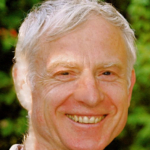What is Gaia University?
Gaia U supports world-changers to create strategic projects and regenerative livelihoods.
A letter from our founders:
Gaia University is a university without walls, a university across borders, an un-institution intent on fostering a zestful, purposeful, global community of thoughtful learners and unlearners focused on ecological regeneration and social justice. We start from the perspective that it is your life, your passions, your projects, your vision – and the rapidly changing contexts in which they are emerging – that best give rise to what you need to learn and how you need to learn it.
Gaia University offers a unique and flexible model for learning and unlearning based on self-directed, project-based pathways. With a minimum of required courses set by us, you devote the major part of your energy towards the design, implementation, and documentation of real-world projects. We provide a multidimensional support web of advisors and mentors who assist you in the practical development of your projects and encourage you to develop your capacity to think critically about your work and inner processes.
Our approach emphasizes a balanced flow of action and theory – learning by doing merged with learning by thinking (praxis). We require you to participate in several online courses in the first year of your program, but the majority of your work-study will unfold beyond the classroom.
You will grow as an agile, self and world-transforming action learner, becoming increasingly competent at taking appropriate action – action that serves both your own ideals and the needs of your community. Simultaneously, you will be unlearning dysfunctional patterns of thinking that hold you back from doing your best work. You will also become an active member of our progressive mutual learning-and-teaching community, which encourages you to be connected and collaborative during and beyond the duration of your program.
As we invite you with open arms, we also advise you to approach Gaia University with true clarity of intention. Working with us involves risk-taking and a willingness to be out at the edge. The route to functioning effectively with liberated intelligences involves episodes of deep and demanding transition. For this, you will need to actively engage with the support web we provide and also invest your own time and energy in the greater worknet by learning how to be a true ally to others. You will need the courage to see how power and privilege shape your life and the world around you, and the stamina to deconstruct belief-structures, often invisible, that constrict your creativity and power.
We are not a school that grooms you for jobs in the corporate marketplace. You join us because you expect to make a living engaged with projects that you know are needed on the planet right now. As a Gaia University associate, you will learn how to identify leverage points for effective leadership and action and develop a wide range of skill-flexes in project design and management. These are much sought-after abilities in the job market today, and the evidence that you have developed these skills to a high degree will be visible in the in-depth documentation of your projects that constitutes your Gaia University ePortfolio. Like the graduates who have gone before you, you will emerge from your program with clear ideas about ways you can contribute to the diverse and inspiring global worknet of innovative non-profits, micro-enterprises and community development projects focused on positive ecological and social change.
We have cheerfully come to see that we ought not to misplace our hopes in current, mainstream educational institutions. These generally lack the agility to meet the ecological and social challenges facing our world today with anything like the speed and creativity required. For this reason, we have intentionally created Gaia University with a rapid growth, mycelial-like organizational design intended to increase strategic coherence on the transitionary edge. This fertile, juicy edge is where we are ready to meet you. Come and join us.
Liora Adler and Andrew Langford
Co-founders and Co-presidents, Gaia University
Our Mission:
Gaia University was founded in order to contribute significantly to growing a coherent global worknet of action-learning, open professionals working in full-spectrum guilds as integrative ecosocial designers, facilitators, and managers who are leaderfully engaged in a supported, synergistic web of all-scale, all-quadrant projects designed for human transformation towards ecological regeneration and social justice.
A primary goal for Gaia University is to co-create, with myriad partners, a thriving ecosocial economy in which millions can make their livings independent of the current ecosocially destructive dominant culture. Additionally, Gaia University is working to support generators and keepers of both non-conventional and conventional knowledge focused on ecosocial regeneration.

Gaia U is not:
- A Permaculture Site – we do not own land or run a permaculture farm
- An Ecovillage – we do not live in a community-style village together
- A brick and mortar university – as an international online university we do not have a fixed campus, nor do we offer classes in a semester- or quarter-based system
- A traditional online university – we do not offer online instructor-led, semester- or quarter-length subject-based courses with homework and tests
Then what is Gaia University?
- A blended learning university – Gaia University Int’l is a university offering a blended system of online, guided course-work combined with on-the-ground, hands-on project work. We are an institution of higher learning that offers mentoring, online courses, diploma certificate programs, and externally-accredited Bachelors of Science and Masters of Science Degrees and a Post-Masters Graduate Diploma
- A university with a unique learning methodology – Gaia U is founded on a learning methodology called Transformational Action Learning and Research and as such focuses on project-based learning rather than purely academic learning
- An organization based on principles of permaculture and ecovillage design – Gaia U operates within the permaculture ethics of Earth Care, People Care, Fair Share. Permaculture and ecovillage design and principles are both fields of inquiry that greatly influence the strategy of our organization and the design and development of all our structures, systems and decisions throughout the organization
- A repository for the knowledge commons of ecosocial regeneration – Gaia U is a steward and librarian of the knowledge commons in the domain of ecosocial regeneration. The work and learning our associates do and document continuously enriches the field and deepens the knowledge base of sustainability
- An international network of world-changers – connected by passion, purpose, principles and an online community, Gaia U is an expanding collaborative network of people actively engaged in experimenting, documenting and implementing solutions for planetary transformation
Our Name
The name ‘Gaia University’ was chosen for our un-institution in order to acknowledge the importance of the Gaia Hypothesis generated by British scientist, James Lovelock, with Lynn Margulis, in the 1970’s. The hypothesis (and the development of subsequent thinking) is significant both for its content – the Earth as a single, self-regulating system with physical, chemical, biological, and human components – and as a major contradiction to the dominant, reductive scientific way of thinking that is often unwilling to look at ‘wholes’. They seem too complex and too unknowable in their entirety to fit with paradigms based on certainty and ‘hard evidence’.
Gaia, the name suggested for the hypothesis by William Golding, the British novelist, is thought to be derived from an ancient concept of ‘Mother Nature’ used by the Mycenaean culture, which itself was derived in part from one of its antecedents, the Minoan culture, which arose as early as 7000 BC. This matters in the Gaia University context as we think of the Minoans as a cultured (indigenous) European society relatively free of the patrix who’s history may hold vital clues as to how to reconfigure modern patrix-ridden, ecosocially destructive cultures.
It is important to us that the Gaia Hypothesis and subsequently developed Gaia Theory are derived from scientific, evidence-based ways of thinking, notwithstanding that many of the mechanisms of planetary self-regulation are yet to be discovered and described. We do not subscribe to the ideology promoted by some new age/old age spiritual/religious thinkers that the Gaia Theory proves that Earth Systems are made purposeful by the directive forces of a supreme being.
A modern (2001) derivative of Gaia Theory developed by the Earth Systems Science Partnership is shown below. Additionally, you can read more here.
- The Earth System behaves as a single, self-regulating system with physical, chemical, biological, and human components. The interactions and feedbacks between the component parts are complex and exhibit multi-scale temporal and spatial variability. The understanding of the natural dynamics of the Earth System has advanced greatly in recent years and provides a sound basis for evaluating the effects and consequences of human-driven change.
- Human activities are significantly influencing Earth’s environment in many ways in addition to greenhouse gas emissions and climate change. Anthropogenic changes to Earth’s land surface, oceans, coasts and atmosphere and to biological diversity, the water cycle and biogeochemical cycles are clearly identifiable beyond natural variability. They are equal to some of the great forces of nature in their extent and impact. Many are accelerating. Global change is real and is happening now.
- Global change cannot be understood in terms of a simple cause-effect paradigm. Human-driven changes cause multiple effects that cascade through the Earth System in complex ways. These effects interact with each other and with local- and regional-scale changes in multidimensional patterns that are difficult to understand and even more difficult to predict.
- Earth System dynamics are characterized by critical thresholds and abrupt changes. Human activities could inadvertently trigger such changes with severe consequences for Earth’s environment and inhabitants. The Earth System has operated in different states over the last half million years, with abrupt transitions (a decade or less) sometimes occurring between them. Human activities have the potential to switch the Earth System to alternative modes of operation that may prove irreversible and less hospitable to humans and other life. The probability of a human-driven abrupt change in Earth’s environment has yet to be quantified but is not negligible.
- In terms of some key environmental parameters, the Earth System has moved well outside the range of the natural variability exhibited over the last half million years at least. The nature of changes now occurring simultaneously in the Earth System, their magnitudes and rates of change are unprecedented. The Earth is currently operating in a no-analogue state.

